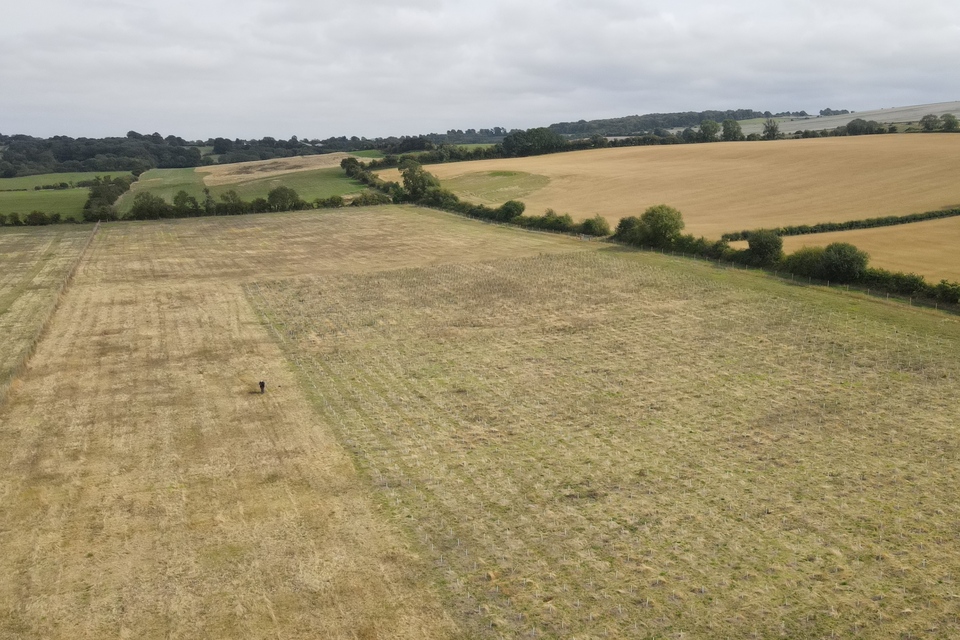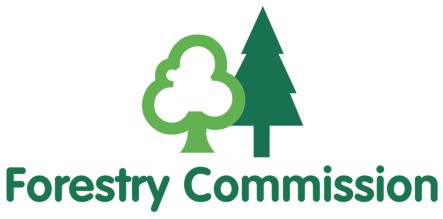Round 4 funded projects
Updated 25 February 2026
Applies to England
The Seed Sourcing Grant (SSG) supports projects that create, identify and enhance seed stands and orchards to ensure the availability of diverse, high-quality tree planting stock to meet government tree planting targets. This funding helps increase the quality, quantity and diversity of seed stands and seed orchards on the Register of UK Basic Material.
Summary of 2025 funding
- total funding allocated: up to £1 million
- number of projects funded: 12 projects across 9 organisations
- geographic spread: projects are located across England
- project duration: projects will run from 2025 to 2028, subject to spending review
Funded projects
Establishing a new wild service tree seed stand
- organisation: Aveland Trees
- organisation type: tree nursery
- location: Lincolnshire
This project aims to establish, register and manage a new source-identified indigenous seed stand of wild service tree (Sorbus torminalis). Aveland Trees have previously collected wild service tree seed from ancient semi-natural woodlands across South Lincolnshire and North Northamptonshire. Saplings grown from this seed will be planted out and managed at their nursery site.
Registering 26 seed stands across Cheshire and surrounding areas
- organisation: Cheshire Wildlife Trust
- organisation type: conservation charity
- location: Cheshire, South Manchester and South Merseyside
This project aims to identify and register 26 source-identified indigenous seed stands in seed zone 302. Cheshire Wildlife Trust will register a mix of upland and lowland sites across Cheshire, South Manchester and South Merseyside.
They will focus on the following species, with the first five taking priority:
- blackthorn (Prunus spinosa)
- wild apple (Malus sylvestris)
- rowan (Sorbus aucuparia)
- small leaved lime (Tilia cordata)
- holly (Ilex aquifolium)
- wild service tree (Sorbus torminalis)
- elder (Sambucus nigra)
- hawthorn (Crataegus monogyna)
- wild cherry (Prunus avium)
- bird cherry (Prunus padus)
Ellie Morris, Nature Recovery Programme Manager (Ecological Networks) at Cheshire Wildlife Trust, said:
This project is a game changer for us, making sure we are collecting seed correctly, as well as potentially influencing our woodland creation, species designs and where and how we plant new woodland.
Planting 15 seed orchards and indigenous seed stands
- organisation: Forestart
- organisation type: tree seed supplier
- location: Shropshire
This project follows on from a previous SSG project and aims to create 13 new seed stands and orchards, and to replace two existing wild cherry orchards. Forestart will prepare and plan the planting sites. They will then plant material collected and propagated during their previous project and register the resulting stands and orchards.
Source-identified indigenous seed stands:
- spindle (Euonymous europaeus) – regions of provenance 30 and 40
- wayfaring tree (Viburnum lantana) – regions of provenance 30 and 40
- bird cherry (Prunus padus) – regions of provenance 30
- blackthorn (Prunus spinosa) – regions of provenance 30
- dogwood (Cornus sanguinea) – regions of provenance 30 and 40
- field maple (Acer campestre) – regions of provenance 30 and 40
- hazel (Corylus avellana) – regions of provenance 30 and 40
Qualified seed orchards:
- wild service tree (Sorbus torminalis) – selections for timber quality from across regions of provenance 30 and 40
- wild cherry (Prunus avium) - regions of provenance 30 and 40

Blackthorn seed stand planted as part of Forestart’s round 1 project.
Identifying alternative conifer seed stands across north and west England
- organisation: Forestart
- organisation type: tree seed supplier
- location: north and west England
This project aims to identify and register high quality selected seed stands across England with a focus on the north and west. The project will primarily, but not exclusively, involve assessing sites on Forestry England land and will focus on the following species:
- Norway maple (Acer platanoides)
- Norway spruce (Picea abies)
- omorika spruce (Picea omorika)
- western hemlock (Tsuga heterophylla)
- western red cedar (Thuja plicata)
- Atlantic cedar (Cedrus atlantica)
- coast redwood (Sequoia sempervirens)
- Corsican pine (Pinus nigra)
- Douglas fir (Pseudotsuga menziesii)
- grand fir (Abies grandis)
- grey alder (Alnus incana)
- Japanese cedar (Cryptomeria japonica)
- Lawson’s cypress (Chamaecyparis lawsoniana)
- lodgepole pine (Pinus contorta var. latifolia)
- Macedonian pine (Pinus peuce)
- yew (Taxus baccata)
If enough good quality Norway maple stands are identified, Forestart will identify plus trees and collect graft material to create a qualified Norway maple seed orchard.
Creating a new beech orchard and enhancing a sessile oak orchard
- organisation: Future Trees Trust
- organisation type: tree breeding charity
- location: Oxfordshire and Herefordshire
This project aims to create a new qualified beech (Fagus sylvatica) seed orchard and enhance an existing qualified sessile oak (Quercus petraea) seed orchard.
Future Trees Trust will collect material from newly identified and existing plus trees. They will also collect from European stands and breeding programmes where trees are more likely to be adapted to future climate scenarios. Material will be propagated by grafting or cuttings and planted out at their research woodland.

Craven Field research woodland. Credit: Ollie Stock, Future Trees Trust
Ollie Stock, Forestry Technician at Future Trees Trust, said:
We are very excited to have been awarded funding to continue our work improving beech and oak trees to make our woodlands more resilient in an uncertain future. We are extremely grateful for support from the Forestry Commission, without which, this work may not have been possible.
Establishing a new wild service tree seed orchard
- organisation: Future Trees Trust
- organisation type: tree breeding charity
- location: Oxfordshire
This project aims to create a qualified wild service tree (Sorbus torminalis) seed orchard. Future Trees Trust will identify plus trees throughout the UK and from European seed source trials, selecting for timber quality and genetic diversity. They will propagate material from these through either grafts or cuttings and plant the orchard in their research woodland.
Registering and managing coast redwood and hornbeam seed stands
- organisation: Future Trees Trust
- organisation type: tree breeding charity
- location: Herefordshire (coast redwood stand) and England-wide (hornbeam stands)
This project aims to increase the quantity and quality of coast redwood (Sequoia sempervirens) and hornbeam (Carpinus betulus) seed available to the UK market. Future Trees Trust will liaise with landowners and managers to help them register high quality seed stands of hornbeam and encourage the management of these. They will also register and carry out management of a coast redwood stand at Whitfield Estate.
Creating a new field maple seed stand
- organisation: The Heart of England Forest
- organisation type: tree planting and land management charity
- location: Warwickshire
This project aims to create a new source-identified indigenous field maple (Acer campestre) seed stand. Seed will be collected from across the Heart of England Forest estate within seed zone 403. Seed will then be propagated, planted out and registered on the Register of UK Basic Materials.
Creating a wych elm seed orchard with enhanced resistance to Dutch elm disease
- organisation: John Innes Centre
- organisation type: plant science research centre
- location: Norfolk
Building on a previous SSG project, this project aims to create a qualified seed orchard of wych elm (Ulmus glabra) with high genetic diversity and an enhanced resistance to Dutch elm disease (DED).
The John Innes Centre will test saplings produced through their previous project for DED-resistance, removing susceptible trees. They will also collect seed from additional wych elms that are potentially DED resistant, produce saplings from this seed and test these. The resulting saplings will be planted and registered as a qualified seed orchard.
Improving the productivity and accessibility of three seed stands
- organisation: Lowther Farming Partnership (Lowther Estate)
- organisation type: land management organisation
- location: Cumbria
This project aims to improve the productivity and accessibility of two new stands of pedunculate oak (Quercus robur) and Norway spruce (Picea abies), and an existing selected beech (Fagus sylvatica) stand on the Lowther Estate. Lowther Farming Partnership will carry out thinning and track repairs and register the new stands on the Register of UK Basic Materials.
Registering and managing seed stands of alternative conifer and native broadleaf species
- organisation: May Hill Woodlands
- organisation type: land management organisation
- location: Gloucestershire
This project aims to identify and register new seed stands across the Huntley Estate. Species may include:
- coast redwood (Sequoia sempervirens)
- Corsican pine (Pinus nigra)
- Douglas fir (Pseudotsuga menziesii)
- grand fir (Abies grandis)
- Norway spruce (Picea abies)
- western hemlock (Tsuga heterophylla)
- western red cedar (Thuja plicata)
- beech (Fagus sylvatica)
- small-leaved lime (Tilia cordata)
- wild cherry (Prunus avium)
- yew (Taxus baccata)
Once identified, May Hill Woodlands will manage these stands to improve their accessibility and productivity. They will also manage a stand of sessile oak and three stands which are already registered.
Identifying and managing indigenous seed stands in seed zone 305
- organisation: National Trust
- organisation type: conservation charity
- location: south west England
This project aims to identify, register and manage at least 5 source-identified indigenous seed stands in seed zone 305, addressing geographical gaps identified in the National Trust’s previous SSG project. The project will primarily focus on:
- beech (Fagus sylvatica)
- holly (Ilex aquifolium)
- wild service tree (Sorbus torminalis)
- yew (Taxus baccata)
- hawthorn (Crataegus monogyna)
Find out about more SSG funded projects.

